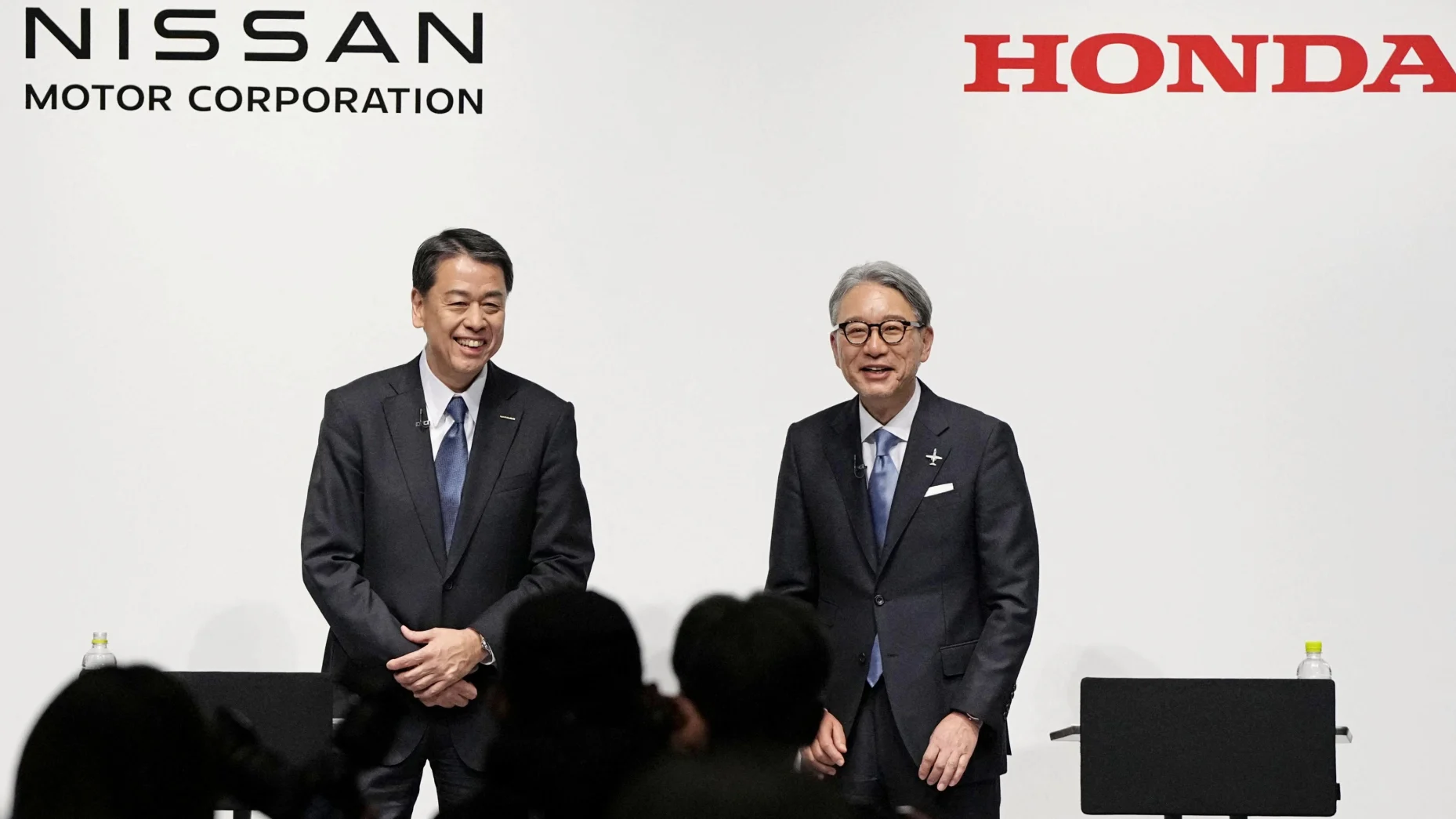Honda and Nissan Set to Begin Merger Talks: Japan’s Auto Industry in Focus
In a groundbreaking development for Japan’s automotive sector, Honda and Nissan are reportedly gearing up to enter merger talks. The news has sparked intense speculation about the future of two of Japan’s biggest car manufacturers. With the global automotive industry in a state of rapid transformation, including shifts toward electric vehicles and increasing competition from international markets, this potential merger could reshape the landscape of Japan’s automotive future.
What We Know About the Honda-Nissan Merger Talks
According to anonymous sources close to both companies, Honda and Nissan have agreed to initiate discussions on a possible merger. The talks are still in their early stages, but both companies have acknowledged the financial pressures and global challenges they face in the highly competitive automotive market. With consumer preferences shifting rapidly toward sustainability and electric vehicles, the merger could offer both manufacturers a chance to consolidate resources and strengthen their position in a market dominated by global giants like Toyota, Volkswagen, and Tesla.
The primary goal behind these discussions appears to be pooling financial and technological resources to better compete with rising industry giants. Both Honda and Nissan are looking for ways to streamline their operations, reduce costs, and accelerate innovation in the development of electric and autonomous vehicles.
Why Is This Merger Significant?
The potential merger between Honda and Nissan carries significant weight in the global automotive industry. Together, the two companies would create a formidable force in both the traditional and electric vehicle markets. Honda has a strong presence in the motorcycle, compact car, and hybrid vehicle sectors, while Nissan is well-regarded for its advancements in electric vehicles, particularly its Nissan Leaf model.
If successful, this merger would help both companies address several key challenges. First, it could help them leverage shared research and development efforts, speeding up the process of electric vehicle innovation. Second, a merger could lead to significant cost reductions through shared production facilities, supply chains, and marketing strategies. Furthermore, with both companies facing increased competition from international players, especially those producing electric vehicles, combining their resources could provide a competitive edge in the race to dominate the electric vehicle market.
Additionally, the merger could allow Honda and Nissan to gain greater scale, which is critical in a world where large companies are consolidating to survive. Such a deal could help both brands stay relevant amidst the challenges posed by climate regulations, technological advancements, and changing consumer behavior.
Global Implications of a Honda-Nissan Merger
The merger of Honda and Nissan would not only reshape Japan’s automotive industry but could also have ripple effects globally. Both companies are major players in the global automotive supply chain, and their merger could potentially affect suppliers, dealers, and competitors worldwide.
If the merger goes through, it could shift the balance of power within the automotive industry. While Honda and Nissan would become an even more significant presence in the global market, this move could also prompt other automakers to consider similar strategies to remain competitive. For instance, it might encourage other traditional automakers to explore mergers or partnerships with electric vehicle startups or technology companies that are already leading the way in autonomous driving and battery technology.
Challenges and Concerns Surrounding the Merger
Despite the potential benefits, the merger talks between Honda and Nissan face several challenges. Cultural differences between the two companies could pose hurdles in terms of corporate governance and operational alignment. Both companies have long histories of maintaining their own distinct brand identities, and merging them could risk diluting these identities in the eyes of consumers.
Moreover, regulatory concerns could complicate the deal. The Japanese government, which has a vested interest in the success of its key industries, may scrutinize the merger closely to ensure that it complies with antitrust laws and does not lead to an undue concentration of market power. International regulators, particularly in the U.S. and European Union, could also impose conditions on the merger if it is perceived to undermine competition.
What’s Next for Honda and Nissan?
As the merger talks continue, both Honda and Nissan will likely explore how they can best integrate their operations while retaining their unique brand characteristics. Analysts suggest that if the deal goes forward, it would likely be structured in a way that preserves some degree of independence for each company, allowing them to maintain their individual identities within the larger corporate structure.
In the coming months, we can expect more updates as both companies provide official statements and potentially reveal further details of the merger talks. The automotive world is watching closely, as this deal could serve as a blueprint for future collaborations within the industry.
Conclusion: A Bold Move for Japan’s Auto Industry
The reported merger talks between Honda and Nissan mark a pivotal moment for Japan’s automotive industry. By combining their resources, both companies could strengthen their competitive position in an increasingly volatile and technology-driven global market. If successful, this merger could also set the stage for other automotive giants to explore similar consolidation strategies.
As we wait for further developments, it’s clear that this potential merger could signal a new era for Japan’s automotive manufacturers, and possibly the entire global industry. With the shift toward electric vehicles and the growing pressure to innovate rapidly, Honda and Nissan may well be making a calculated move to ensure their survival in the future of transportation.



